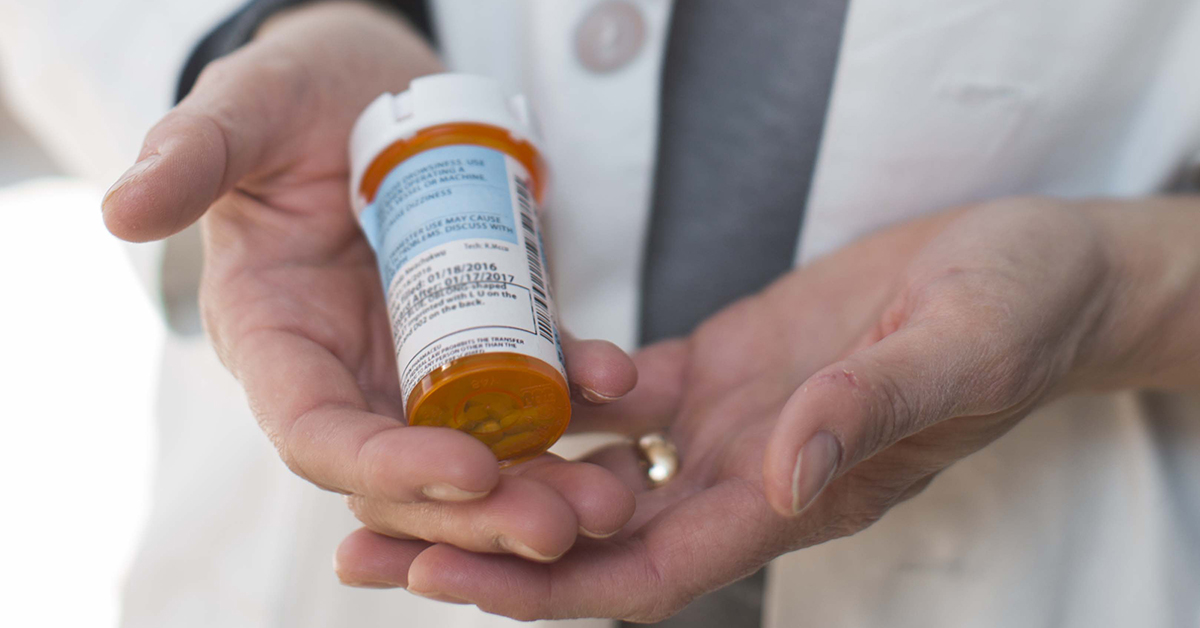TTUHSC to Host Lubbock’s Fall Medication Cleanout™
Event Allows Residents to Bring in Unwanted Medications for Proper Disposal

With the weather getting cooler and the leaves adding their colors to the landscape, autumn is a perfect time to catch up on cleaning up around the house. Medical experts suggest it’s also a good time to rid your medicine cabinet of all expired, unwanted or unnecessary medications.
To help dispose of those medications, the Texas Panhandle Poison Center (TPPC), managed by the Texas Tech University Health Sciences Center (TTUHSC) Jerry H. Hodge School of Pharmacy, will host a Medication Cleanout™ 10 a.m. to 2 p.m. Saturday (Oct. 10) at the Texas Tech Physicians Medical Pavilion, 3601 Fourth St.
TPPC Managing Director Jeanie Jaramillo-Stametz, Pharm.D., encourages Lubbock residents and those from the surrounding area to bring their unused, expired or unnecessary medications for proper disposal. The program also provides disposal services for syringes or sharps.
This is TPPC’s 67th Medication Cleanout™ event. Since TPPC began the program in 2009, more than 54,000 pounds of medications and sharps have been collected for proper disposal. Jaramillo- Stametz said old medications become potential sources of poisoning to young children or may be accessed by teens experimenting with drugs. They also are a hazard to adults and elderly as they increase the risk of choosing the wrong bottle or taking medications that are no longer required.
“Medication Cleanout™ is a proactive approach to safeguard our communities by providing a free and convenient way for people to dispose of these medications in a legal, environmentally sound and convenient manner,” Jaramillo-Stametz added.
Nationally, Jaramillo-Stametz said the abuse of prescription medications continues to be an epidemic. In addition, the COVID-19 pandemic restrictions mean people are home more now than ever, especially children. This places them at increased risk of poisoning by medications. And many pre-teens, teens and adults are experiencing depression and sadness due the pandemic, which could lead them to impulsively turn to the medicine cabinet for relief or as a suicidal gesture.
“Taking just a few minutes to clean out your medication can be life-saving by removing access to lethal means,” Jaramillo-Stametz added. “Poisoning, including medication overdose is the third leading method of suicide in the U.S.”
Medication Cleanout™ employs a drive-thru, drop-off format that allows residents to conveniently dispose of their medications without leaving their cars. Yard signs will be posted to help drivers locate the drive-thru path. Medications should be left in their original containers and participants are asked to wear face coverings to protect themselves and others.
Because of environmental restrictions, only medications from households can be accepted. Medications from clinics, pharmacies and other businesses are not allowed.
For more information about the Medication Cleanout™, call (806) 414-9495 or visit www.MedicationCleanout.com.
Related Stories
Celebrating Veterans: TTUHSC’s General Martin Clay’s Legacy of Service and Leadership
From his initial enlistment in the Army National Guard 36 years ago to his leadership in military and civilian health care management roles, Major General Martin Clay’s career has been shaped by adaptability, mission focus and service to others.
Texas Tech University Health Sciences Center School of Nursing Named Best Accelerated Bachelor of Science in Nursing Program in Texas
The TTUHSC School of Nursing Accelerated Bachelor of Science in Nursing (BSN) program has been ranked the No. 1 accelerated nursing program in Texas by RegisteredNursing.org.
TTUHSC Names New Regional Dean for the School of Nursing
Louise Rice, DNP, RN, has been named regional dean of the TTUHSC School of Nursing on the Amarillo campus.
Recent Stories
The John Wayne Cancer Foundation Surgical Oncology Fellowship Program at Texas Tech University Health Sciences Center Announced
TTUHSC is collaborating with the John Wayne Cancer Foundation and has established the Big Cure Endowment, which supports the university’s efforts to reduce cancer incidence and increase survivability of people in rural and underserved areas.
TTUHSC Receives $1 Million Gift from Amarillo National Bank to Expand and Enhance Pediatric Care in the Panhandle
TTUHSC School of Medicine leaders accepted a $1 million philanthropic gift from Amarillo National Bank on Tuesday (Feb. 10), marking a transformational investment in pediatric care for the Texas Panhandle.
Texas Tech University Health Sciences Center Permian Basin Announces Pediatric Residency Program Gift
TTUHSC Permian Basin, along with the Permian Strategic Partnership and the Scharbauer Foundation, Feb. 5 announced a gift that will fund a new pediatric residency.
